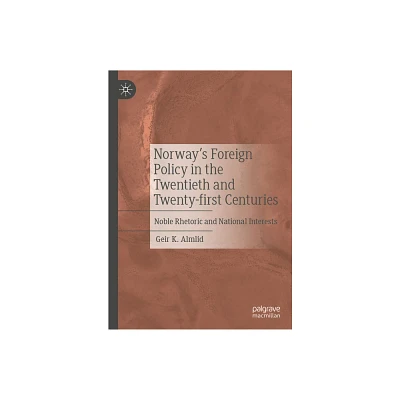Home
How to Make Love a Despot: An Alternative Foreign Policy for the Twenty-First Century
Loading Inventory...
Barnes and Noble
How to Make Love a Despot: An Alternative Foreign Policy for the Twenty-First Century
Current price: $19.99


Barnes and Noble
How to Make Love a Despot: An Alternative Foreign Policy for the Twenty-First Century
Current price: $19.99
Loading Inventory...
Size: Audiobook
*Product Information may vary - to confirm product availability, pricing, and additional information please contact Barnes and Noble
After generations of foreign policy failures, the United States can finally try to make the world safer—not by relying on utopian goals but by working pragmatically with nondemocracies.
Since the end of the Second World War, the United States has sunk hundreds of billions of dollars into foreign economies in the hope that its investments would help remake the world in its own image—or, at the very least, make the world “safe for democracy.” So far, the returns have been disappointing, to say the least. Pushing for fair and free elections in undemocratic countries has added to the casualty count, rather than taken away from it, and trying to eliminate corruption entirely has precluded the elimination of some of the worst forms of corruption. In the Middle East, for example, post-9/11 interventionist campaigns in Afghanistan and Iraq have proved to be long, costly, and, worst of all, ineffective.
Witnessing the failure of the utopian vision of a world full of market-oriented democracies, many observers, both on the right and the left, have begun to embrace a dystopian vision in which the United States can do nothing and save no one. Accordingly, calls to halt all assistance in undemocratic countries have grown louder. But, as Stephen D. Krasner explains, this cannot be an option: weak and poorly governed states pose a threat to our stability. In the era of nuclear weapons and biological warfare, ignoring troubled countries puts millions of American lives at risk.
“The greatest challenge for the United States now,” Krasner writes, “is to identify a set of policies that lie between the utopian vision that all countries can be like the United States . . . and the dystopian view that nothing can be done.” He prescribes a pragmatic new course of policy. Drawing on decades of research, he makes the case for “good enough governance”—governance that aims for better security, better health, limited economic growth, and some protection of human rights. To this end, Krasner proposes working with despots to promote growth.
In a world where a single terrorist can kill thousands or even hundreds of thousands of people, the United States does not have the luxury of idealistically ignoring the rest of the world. But it cannot remake the world in its own image either. Instead, it must learn how to make love to despots.
Since the end of the Second World War, the United States has sunk hundreds of billions of dollars into foreign economies in the hope that its investments would help remake the world in its own image—or, at the very least, make the world “safe for democracy.” So far, the returns have been disappointing, to say the least. Pushing for fair and free elections in undemocratic countries has added to the casualty count, rather than taken away from it, and trying to eliminate corruption entirely has precluded the elimination of some of the worst forms of corruption. In the Middle East, for example, post-9/11 interventionist campaigns in Afghanistan and Iraq have proved to be long, costly, and, worst of all, ineffective.
Witnessing the failure of the utopian vision of a world full of market-oriented democracies, many observers, both on the right and the left, have begun to embrace a dystopian vision in which the United States can do nothing and save no one. Accordingly, calls to halt all assistance in undemocratic countries have grown louder. But, as Stephen D. Krasner explains, this cannot be an option: weak and poorly governed states pose a threat to our stability. In the era of nuclear weapons and biological warfare, ignoring troubled countries puts millions of American lives at risk.
“The greatest challenge for the United States now,” Krasner writes, “is to identify a set of policies that lie between the utopian vision that all countries can be like the United States . . . and the dystopian view that nothing can be done.” He prescribes a pragmatic new course of policy. Drawing on decades of research, he makes the case for “good enough governance”—governance that aims for better security, better health, limited economic growth, and some protection of human rights. To this end, Krasner proposes working with despots to promote growth.
In a world where a single terrorist can kill thousands or even hundreds of thousands of people, the United States does not have the luxury of idealistically ignoring the rest of the world. But it cannot remake the world in its own image either. Instead, it must learn how to make love to despots.


















